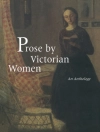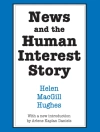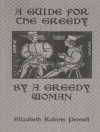Investigates the field of German life writing, from Rahel Levin Varnhagen around 1800 to Carmen Sylva a century later, from Döblin, Becher, women’s WWII diaries, German-Jewish memoirs, and East German women’s interview literatureto the autofiction of Lena Gorelik.
In recent decades, life writing has exploded in popularity: memoirs that focus on traumatic experiences now constitute the largest growth sector in book publishing worldwide. But life writing is not only highly marketable; it also does important emotional, cultural, and political work. It is more available to amateurs and those without the cultural capital or the self-confidence to embrace more traditional literary forms, and thus gives voice to marginalized populations.
Contested Selves investigates various forms of German-language life writing, including memoirs, interviews, letters, diaries, and graphic novels, shedding light on its democratic potential, on its ability to personalize history and historicize the personal. The contributors ask how the various authors construct and negotiate notions of the self relative to sociopolitical contexts, cultural traditions, genre expectations, and narrative norms. They also investigate the nexus of writing, memory, and experience, including the genre’s truth claims vis-à-vis the pliability and unreliability of human memories. Finally, they explore ethical questions that arise from intimate life writing and from the representation of ‘vulnerable subjects’ as well as from the interrelation of material body, embodied self, and narrative. All forms of life writing discussed in this volume are invested in a process of making meaning and in an exchange of experience that allows us to relate our lives to the lives of others.
قائمة المحتويات
Acknowledgments
Introduction
Katja Herges and Elisabeth Krimmer
Part I. Women’s Life Writing,
Female Subjectivity and Agency
1: ‘A Portrait of the Moment’: Rahel Levin Varnhagen’s Letters at the Boundary of Life Writing
Laura Deiulio
2: A Force of Nature: Narrative Strategies of Autobiography in the Work of Poet-Queen Carmen Sylva
Beth Ann Muellner
3: Writing the Cultural Memory of East Germany through Women’s
Interviewliteratur
Julie Shoults
Part II. Modern Life Writing and Aesthetics
4: A Life of Its Own: Alfred Döblin on Autobiography and the Novel
Matthias Müller
5: A Man of the Century in His Poems: Johannes R. Becher and the Creation of the Twentieth-Century Life Narrative
Kristin Eichhorn
Part III. Trauma and
Vergangenheitsbewältigung
6: Writing Two Selves: A Woman’s Struggle to Cope with War
Erika Quinn
7: ‘Confrontation with My Complicity’: Paratextual Self-Encounters in Diaries of the Second World War
Kathryn Sederberg
8: Voices from an ‘Extinct Species’: Narrative Responses to Trauma in German-Jewish Memoirs
Jennifer Hansen-Glucklich
Part IV. Transnational and Transgenerational
Life Writing in Contemporary Germany9: The Case of the Disappearing Son: Gender, Genre, and German Postwar Cultural Memory in Niklas Frank’s
Meine deutsche Mutter and F. C. Delius’s
Bildnis der Mutter als junge Frau
Katra Byram
10: Lena Gorelik’s Autofictional Letter
Lieber Mischa: A Guide to Being Jewish in Contemporary Germany
Lydia H. Heiss
11: Shapeshifters: Metamorphosing Transgenerational Trauma through Comics
Maureen Burdock
12: Homeland, Nation, and Gender in the Life Writing of German and Jewish Émigrés
Aylin Bademsoy
Bibliography
Notes on the Contributors
Index
عن المؤلف
Aylin Bademsoy is a Ph D candidate in the German Department at UC Davis.












